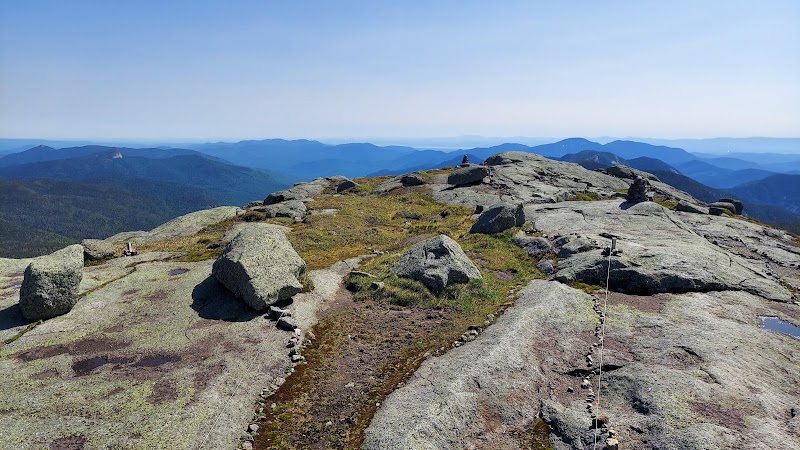
Experience the Alburgh Town Summer Festival: Vermont’s Lakeside Celebration of Community and Adventure
Alburgh Town Summer Festival lights up Vermont’s Lake Champlain shore with local crafts, live music, and outdoor adventure. Whether you’re here to kayak, hike, or savor fresh foods, this vibrant weekend offers something practical and exciting for every visitor.
Bring Layered Footwear
The festival area shifts from wooden docks to forest trails. Footwear should be comfortable for walking on varied terrain and resistant to dampness if you plan to kayak.
Hydrate Regularly
Summer sun can intensify quickly. Keep a refillable water bottle handy; vendors offer refreshments, but staying ahead of thirst helps maintain energy.
Arrive Early for Parking
Parking fills quickly as festival attendance peaks mid-morning. Arriving early ensures easy access and a less crowded experience.
Plan for Sun Protection
Water reflects sunlight fiercely by the lakeside. Sunscreen, hats, and sunglasses are practical essentials even if clouds occasionally shadow the festival.
Experience the Alburgh Town Summer Festival: Vermont’s Lakeside Celebration of Community and Adventure
When July rolls around in Alburgh, Vermont, the small town surges with energy unique to its place on the edge of Lake Champlain. The Alburgh Town Summer Festival is far from a standard fair; it’s an invitation to engage with the town’s culture, landscapes, and spirited community. Picture sprawling waterfront greens where kids dart between brightly colored booths selling handmade crafts, the scent of grilled local fare floating in the air, and live music pulsing against the backdrop of the lake’s restless surface.
This festival is designed to bring you closer to Alburgh’s roots and scenery. The waterfront doesn’t just sit still—it encourages exploration. Kayaks beckon from the shore, ready to challenge you against the lake’s gentle but persistent currents, while trails weave from the fest grounds into surrounding woodlands whispering through tall pines and maples. These shaded paths offer a chance to absorb Vermont’s natural pulse without pushing past a comfortable pace, making them accessible for families and seasoned hikers alike.
Practical planning here is straightforward. The festival typically spans a weekend in mid-July, when temperatures hover in the comfortable mid-70s to low 80s Fahrenheit. Footwear that can transition between soft trail soil and dockside wood planks is recommended, especially if you want to switch between land and water activities. Hydration is a must, as summer sun can climb higher than expected even with intermittent cloud cover. Vendors supply plenty of refreshments, but carrying your own water bottle ensures you stay ahead of any heat-driven fatigue.
Beyond the festival itself, Alburgh encourages engagement with its layered history—from indigenous influences to its role in regional trade routes—and the community’s commitment to preserving these stories is evident in displays throughout the event.
The festival’s rhythm mirrors the lake and forests themselves: lively, inviting, yet demanding respect for their power and presence. It’s not about taming the environment, but learning to listen as the breeze nudges the sails, the trees murmur overhead, and the festival crowd moves in sync with Vermont’s summer heartbeat.
For those aiming to make the most of their visit, plan to arrive early to beat parking rushes, space out your activities to avoid becoming overwhelmed, and set aside time to chat with locals who hold the keys to the town’s hidden histories and best photo ops. As evening falls, the festival’s lighting softens, the lake glistens with a hint of moonlight, and the town’s conviviality lingers like a promise to return.
Nearby Trips
All Adventures
Boat Charters
Water Activities
Adventures near Alburgh, Vermont
Discover the unique and memorable adventures that make Alburgh, Vermont special.
Frequently Asked Questions
What activities are offered at the Alburgh Town Summer Festival?
The festival features local artisan booths, live music stages, food vendors specializing in Vermont fare, kayaking and paddleboarding rentals, and guided short hikes on nearby trails.
Is the festival family-friendly?
Yes, the event caters to all ages with kids’ crafts, safe waterfront activities, and ample open space for games and relaxation.
Where can I park for the festival?
Several public lots are available close to the festival site, but they fill quickly. Arriving early or using a local shuttle from nearby Burlington is recommended.
Are pets allowed at the festival?
Pets are permitted but must be kept on a leash. Owners should clean up after their animals and ensure they handle interactions with other attendees responsibly.
What local wildlife might I see around the festival area?
Visitors often spot great blue herons along the shoreline, eastern chipmunks darting through the forest, and occasionally glimpses of white-tailed deer near the woodlands.
Is camping available nearby?
Public campgrounds are limited immediately in Alburgh, but accommodations and campgrounds around Lake Champlain and Burlington offer options within a short drive.
Recommended Gear
Comfortable Hiking Shoes
Supports varied festival terrain including forest trails and lakeside pathways.
Water Bottle
Staying hydrated is critical in summer heat, especially when engaging in outdoor activities.
Sunscreen
Protects skin against intense sun glare from the lake and open festival areas.
Light Rain Jacket
Helpful for sudden spring showers and cooler mornings or evenings.
Local Insights
Hidden Gems
- "The panoramic view from the Alburg Dunes Wildlife Refuge offers striking lake vistas less frequented by visitors."
- "The historic Union Meeting Hall hosts occasional traditional Vermont music sessions during the festival weekend."
Wildlife
- "Watch for osprey circling overhead fishing in Lake Champlain."
- "Early morning birdwatchers may spot the elusive wood thrush singing amidst the festival’s forested edges."
History
"Alburgh’s festival tradition reflects the town’s blend of native Abenaki heritage and the farming communities established in the 18th century, making it more than a gathering but a celebration of cultural continuity."
